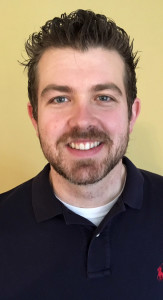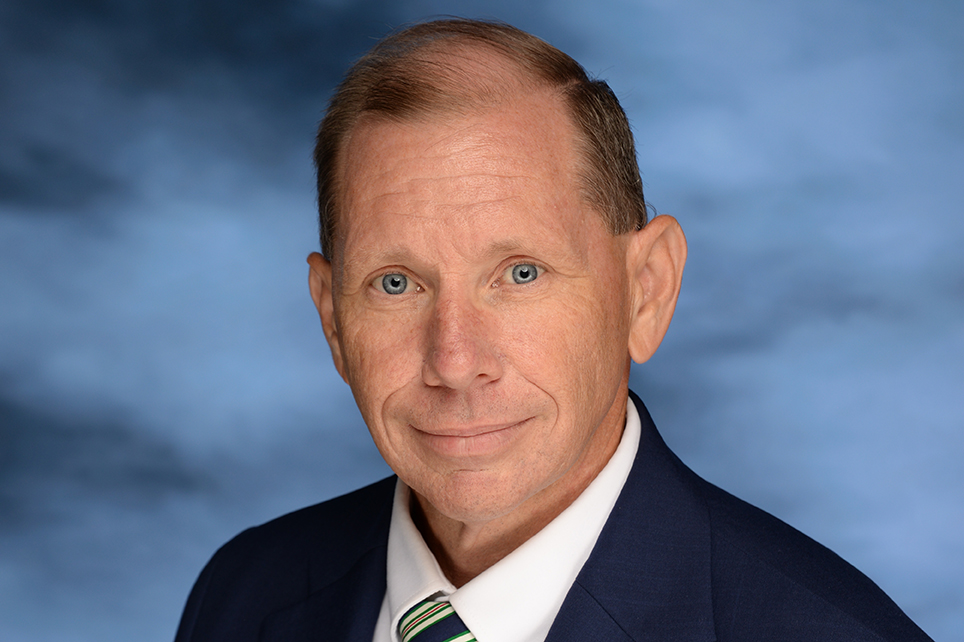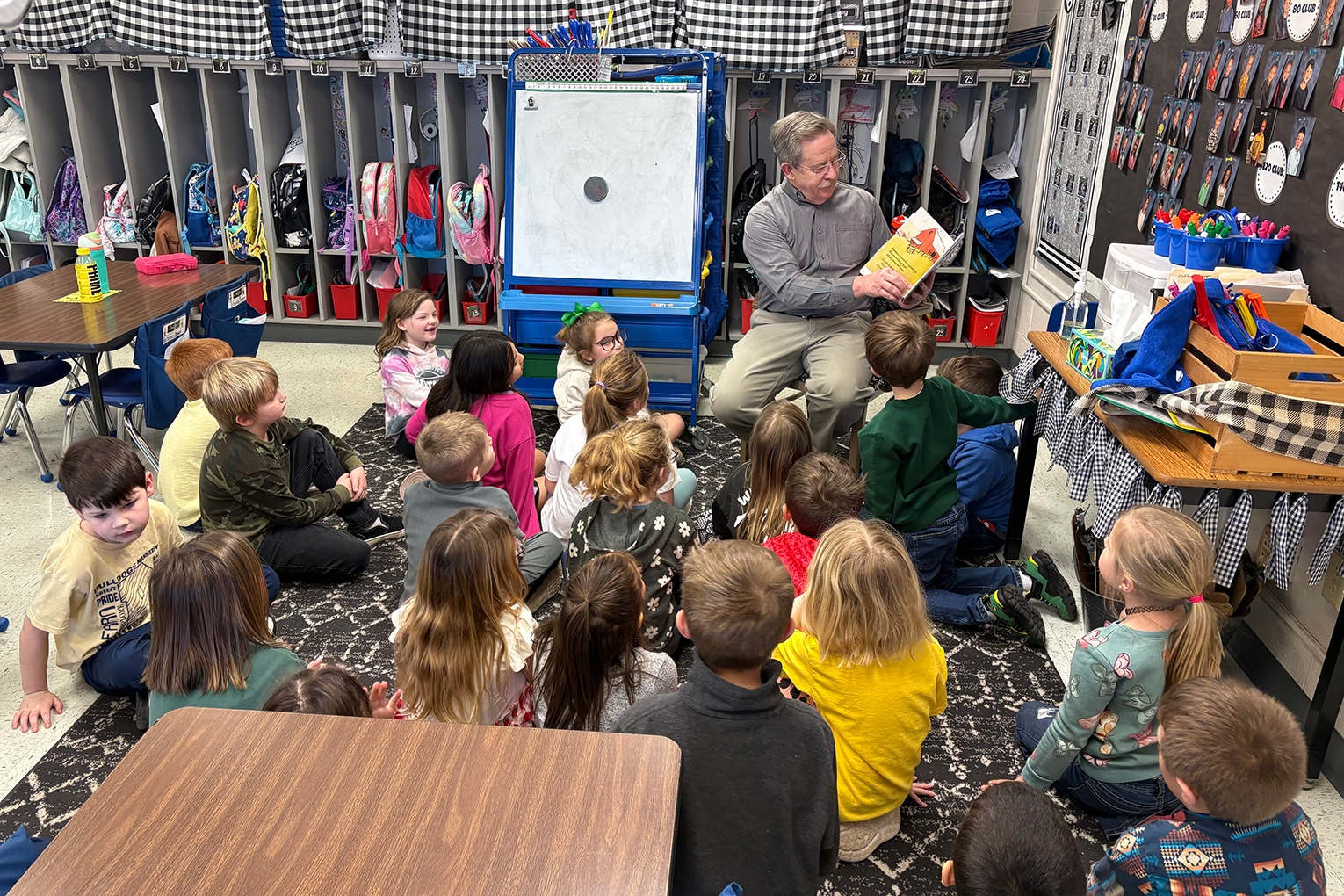
Joe Payne
By Joe Payne
joe.payne@fayette.kyschools.us
Most educators would agree this time of the year is often the most trying time of each school year. The changing weather, the pressure to make sure all material is being covered prior to state testing and the excitement of spring break (or doldrums following) weigh heavy on students and staff alike. Stress levels are often high, tempers are often short and the honeymoon period of the beginning of the year seems like a distant memory.
While working with a small group of students for reading intervention one morning recently, I could almost feel the unease radiating from them. Already struggling with the fact that they perform behind their peers, as well as dealing with countless life issues that many of us hope to never endure, they were frustrated before our time together even started. My heart hurt for them.
As a break in routine, I said “Let’s do some journal writing.” Which was, as expected, followed by a small series of groans. I responded positively by saying, “Let’s write about all the amazing things you are going to do when you grow up!” Hoping for some smiles or at least a snide remark, instead I saw fear and anxiety.
Their response was quick: “I can’t write about that,” and “I don’t want to do that.” Then something happened that shook me to my core. Two students started crying. My heart sank. They were not crying because they didn’t want to write, but crying from the pain of thinking about growing up.
One of my teary-eyed students looked me directly in the eye and said, “I don’t want to grow up. Everything bad happens when you grow up.” To which another student said, “Yeah. You lose everybody that you care about. You have to worry about going to jail or getting shot and you are always sad.”
I sat shell-shocked.
I like to think I am very in tune with the feelings of my students and knowledgeable about their family life. I pride myself on building strong relationships. And I sat there realizing I had little true understanding of the hurt they were feeling or the harsh realities that created those feelings. We spent the next 15 minutes simply having a conversation about all the issues (drugs, poverty, violence, etc.) of their everyday surroundings. I stated as plainly as I could that those challenges don’t define who they are or what they will become. The mood and overall morale of the meeting improved as our time together passed, but the impact of those students’ predictions of their futures shaped me.
I had sought the hopeful, imaginative, innocent aspirations of solving the world’s problems as president, helping the sick as a doctor or striking it rich as a professional athlete. Instead. I received a powerful gut check and more importantly, a call to action.
Our amazing staff works tirelessly and loves their kids deeply. Still, students all across the country share these same fears of the future. As professionals and citizens of this beautiful state, we must all do more. With improved academic standards and ever-improving technology we are certainly doing a better job of preparing students for the 21st century, but one thing is missing for so many students across Kentucky – hope. An opportunity to believe they really can solve the world’s problems.
The task is immense and requires soul-searching and desperate leaps outside of my professional comfort zone. But like all things, I realized it starts with baby steps. A first step is manageable.
For me, it starts with struggling through conversations with non-English speaking parents using whatever resources I have available. It starts by sharing the many traditional and nontraditional programs available in our district. If our students and families become more aware of the many career opportunities available in the near future – like the opportunity to be a veterinary assistant, earn certifications in emergency management and law enforcement, or to have several college credit hours completed upon graduation from high school – maybe conversations and mindsets shift toward hope.
I know that I must begin seeking out all possible resources in the community available for the students and families I serve. The idea of future success and prosperity is not a pipe dream for our students. I hope to breed hope by connecting young students with successful young adults that look like them and have been where they are.
At James Lane Allen Elementary (Fayette County), we are making strides in our building with events like our bilingual “Coffee Talks” with parents, where parents meet with staff over free coffee to discuss opportunities available to our students, how to support students at home and general school information. Additionally, our entire staff is immersing itself in professional development with English-learner strategies to meet the needs of our diverse students.
Some young students in Kentucky are sitting quietly while living in fear of becoming an adult, fearful of their future rather than excited about the potential to improve their communities. Our children have no problem identifying all the problems of the world, now they just need the inspiration and support to go and solve them. How will you invigorate the future problem solvers of America? Because it is going to take all of us.
Joe Payne is a former special education teacher and current behavior coach at James Lane Allen Elementary in Lexington. He is a current Hope Street Group Kentucky state teacher fellow interested in amplifying teacher voice, increasing teacher leadership and influencing policy.



Thank you for sharing this insightful experience with your students!
Excellent article! You’ve highlighted concerns the average teacher never learns of or thinks about. We expect so much from children who come from at risk backgrounds. Sometimes we forget about the hierarchy of needs and survival for these little guys!